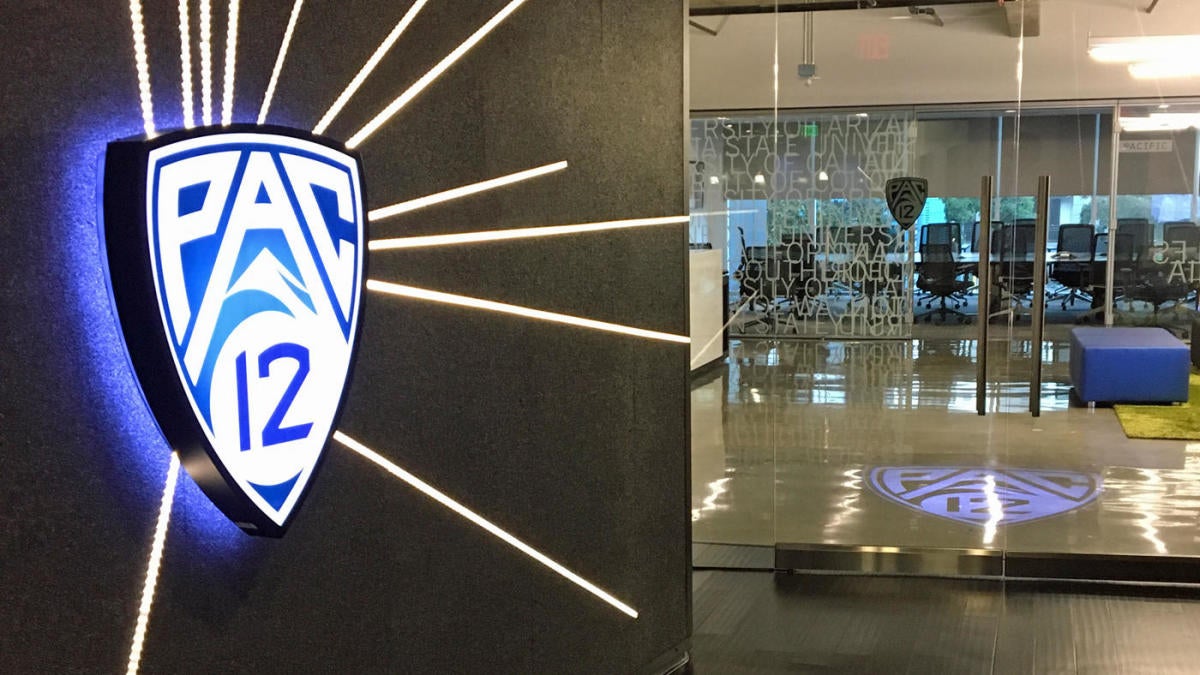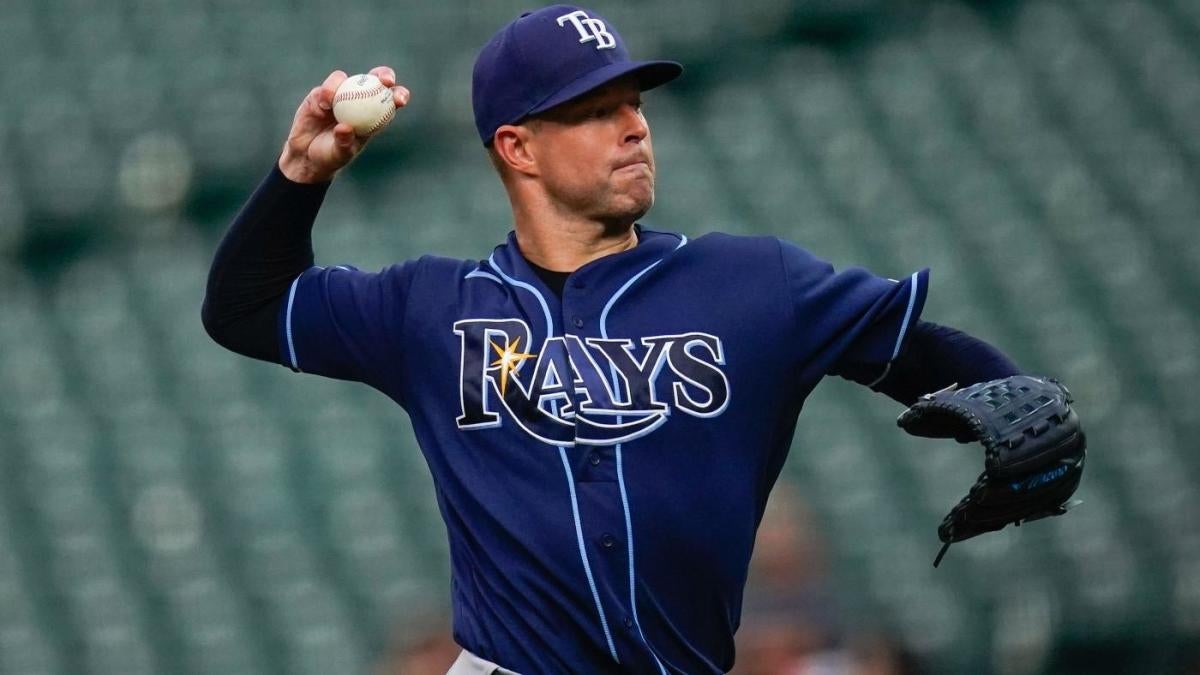‘No Pac-12 school is joining the Big 12:’ Pac-12 commish efforts to save a conference on the brink
Written by ABC AUDIO ALL RIGHTS RESERVED on July 30, 2022

LOS ANGELES — George Kliavkoff was wired. Not only because of the sparks practically shooting off him due to the loss of USC and UCLA to the Big Ten — yes, he’s that upset — but the Pac-12 commissioner was also wired in the traditional sense: his obligatory cell phone.
It carries instant updates from a network of Pac-12 presidents, chancellors and athletic directors who now report to him each time a Big 12 school reaches out.
“It gets forwarded to me,” Kliavkoff told CBS Sports. “That’s a constant stream of nonsense. Let’s be very clear. No Pac-12 school is joining the Big 12.”
Kliavkoff called his shot that the Big 12 will not trespass, which in these turbulent times is true until it is not. He is a commissioner trying to save his conference on two fronts. The Big Ten has taken its bite and continues to have options. The Big 12 is definitely making inquiries with Pac-12 schools.
At the same time, the Pac-12 continues explore its own expansion.
During a day-long media car wash that included a one-on-one interview with CBS Sports, Kliavkoff portrayed anger, compassion, bravado and optimism. In the end, there should be some sympathy.
“I’ve been spending four weeks trying to defend grenades from every corner of the Big 12,” he said during the media day kickoff. “I get why they’re scared. I get why they’re trying to destabilize us. I was tired of that.”
Kliavkoff is hoping his world would stop spinning. He came to this job as an innovator and change agent at MGM. At the time of his hiring, he was the most non-traditional commissioner in the Power Five, if not the country. Now, insert your level of bad juju here: On June 30, when he got word of the defections, Kliavkoff was one day short of the anniversary of his hiring and the beginning of name, image and likeness rights for athletes.
That day signaled the end of the Pac-12 as we know it. The league will likely survive but only in some altered form.
It could pluck suddenly attractive San Diego State (among others) and become the equivalent of a Mountain West Plus.
It could also stay at 10 teams. One Pac-12 AD told CBS Sports that’s “the best and only option.”
The result is an emphasis of what West Coast football has become lately — isolated out of the mainstream because of a lack of College Football Playoff appearances, which eventually led to a defection of California talent to Southeastern powers.
Regardless, it’s clear recent events have left a mark on Kliavkoff’s psyche and sense of duty. He was vacationing in Montana when it all happened. First it was the fish biting, then it was the modern college landscape biting him in the backside.
“In the last year, there’s been a move away from collegiality and trust among the conference commissioners,” Kliavkoff told CBS Sports. “That’s really, really disturbing.”
Collegiality is another way of defining grown men playing nice with one another. The vagaries of college athletics have had their way with him and others. We’re always only a bulletin away from what seems like the latest corporate raid.
League coaches at media day were already calling it the Pac-10. Tongue-in-cheek, UCLA coach Chip Kelly shared the exact distance between L.A. and Rutgers (2,765 miles or 4.5 hours by plane). USC coach Lincoln Riley told CBS Sports, when he took the job. there wasn’t any direct knowledge of a move to the Big Ten. But USC being USC, it’s well known the school has always had options.
Meanwhile, Kliavkoff had the look of a man who’d been knee-capped by a degrading collegiate model. Not in a literal sense, of course, but the crass nature of conference raids conducted in the name of TV money have become so common, the raw emotion of those impacted never fails to leave a mark.
That’s not to say the commissioner is over the Big Ten poaching his two flagship universities. It’s clear that he and Big Ten commissioner Kevin Warren haven’t spoken since before the raid.
“We’re not scheduled to talk in the future,” Kliavkoff said sternly. “Kevin has my phone number.”
He hasn’t spoken to the CEOs at USC and UCLA since they called matter-of-factly the day after word leaked to inform him of their schools’ departure.
The irony of the media days themselves was evident. They were held in this city that was the center of the conference. Now, Los Angeles will house no Pac-12 members beginning in 2024.
“I took this job because of what we do for student-athletes,” Kliavkoff said. “At the end of the day, this looks like a short-term money decision that probably puts student-athletes in a worse position in terms of health and safety, travel and academic pursuits. That’s unfortunate.
“I feel for our athletes at UCLA and USC.”
Kliavkoff said he will be rooting for both schools across the next two years.
“Why?” asked Billy Witz of the New York Times.
“Because,” the commissioner said, “it’s the right thing to do.”
With the loss of USC and UCLA, Kliavkoff is currently overseeing a conference, the remains of which must think long and hard before pledging to sign any legal document that would commit them to the Pac-12 going forward.
Asked directly about committing to the league with a binding grant of rights, Oregon AD Rob Mullens said he would have to study the landscape, including future College Football Playoff expansion.
What he didn’t say: We’re all-in. And that’s the shame of watching the Pac-12 teeter so much. It probably won’t dissolve, but it definitely won’t be the same again.
It’s sad to see a good man or woman leading a conference be treated like this — again. But as wounded as the Pac-12 appears, it had its chance. Last year, several Big 12 schools reached out to the Pac-12 after Texas and Oklahoma left for the SEC. None received any traction due to what one Big 12 source called “elitist” Pac-12 presidents.
Now, those presidents are evaluating their options. Sources told CBS Sports the Big 12 is optimistic about their annual media rights being “much bigger” than $30 million per year beginning in 2025. That figure is currently the Pac-12 ceiling with its 10 remaining members, according to industry sources.
SMU has been mentioned as a possibility for the Pac-12 to get into the rich Texas recruiting grounds, but there is a reason it’s still in the American. TCU, Baylor, Texas Tech (Big 12) and Texas (leaving the Big 12 for the SEC) are more valued by other conferences.
San Diego State looks like Utah from a few years ago — poised for entry into the big time after years of investing in its athletic infrastructure. The new Snapdragon Stadium is one of the finest venues in the country.
Conferences can rebound. A year ago, the Big 12 looked like it might go away. It had formed out of the detritus of the old Southwest Conference. Nebraska, Oklahoma, Texas and Texas A&M always seemed to have options.
The Pac-12 was founded as the Pacific Coast Conference in 1907. It represents the West Coast and its culture. On beautiful days like Friday, the populous would rather go to the beach than the L.A. Coliseum. Still, to be on top in this town and the Pac-12 is — or was — something special.
Pete Carroll turned the city on during a time at which it lacked an NFL team. Kelly made Oregon a national power thanks to talent he recruited out of this region. UCLA has its basketball heritage. Utah, while not exactly West Coast, waited decades for its chance at the big time. Now, the Utes give the league its latest power base; they are favored to win their second straight Pac-12 title.
“I knew I was stepping into a job that was a puzzle where there was some repair to be done from decisions that had been made previously,” Kliavkoff concluded. “The puzzle has become much more complicated. That’s OK because I love puzzles.”
The post ‘No Pac-12 school is joining the Big 12:’ Pac-12 commish efforts to save a conference on the brink first appeared on CBS Sports.



